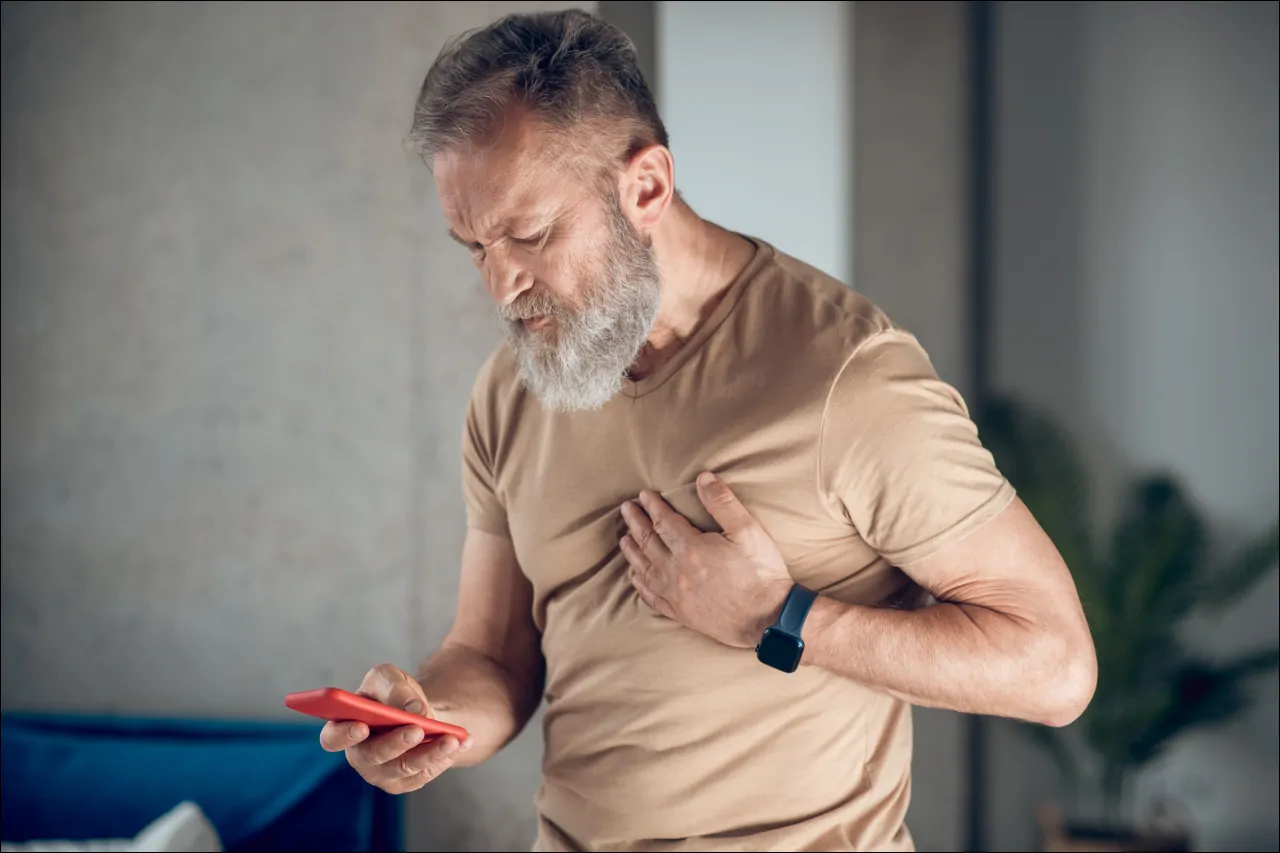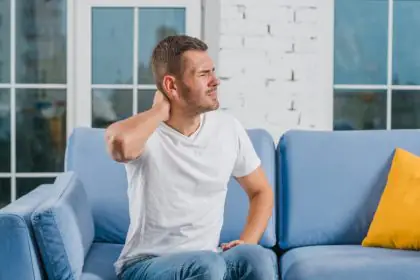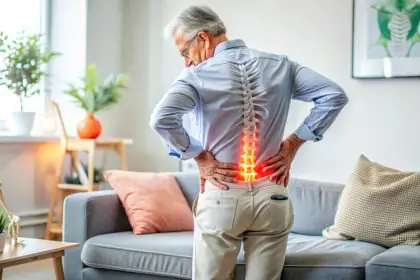Anxiety chest pain refers to a type of chest discomfort or pain experienced by individuals who are dealing with anxiety or panic attacks.
It is a symptom commonly associated with anxiety disorders and can vary in intensity and duration.
People experiencing anxiety chest pain often describe it as a sharp or stabbing sensation in the chest, tightness or pressure, or a feeling like their heart is racing or skipping beats.
It can be distressing and alarming, but it is usually not indicative of a serious cardiac issue.
Anxiety chest pain is typically caused by the body’s physical response to stress or anxiety, such as increased muscle tension or hyperventilation.
The exact causes of anxiety chest pain are not fully understood, but it is believed to result from a combination of physiological and psychological factors.
When a person experiences anxiety or stress, their body activates the “fight or flight” response, triggering various physiological changes.
These changes can include increased heart rate, elevated blood pressure, muscle tension, and rapid breathing.
The intense emotions and physical responses associated with anxiety can lead to chest discomfort or pain.
How to identify Anxiety Chest Pain?
Identifying anxiety chest pain can be challenging as it shares similarities with other medical conditions.
However, here are some common factors to consider when trying to identify anxiety-related chest pain:
Understand the symptoms
Anxiety chest pain usually presents as a sharp or stabbing sensation in the chest, often accompanied by a tightness or pressure feeling.
This pain is typically fleeting and tends to come and go with anxiety episodes.
Take note of triggers
Anxiety chest pain is often triggered by situations or events that induce anxiety.
It may be more prevalent during periods of high stress, panic attacks, or situations that provoke fear or worry.
Assess additional anxiety symptoms
Anxiety is often accompanied by other physical and psychological symptoms.
Look for signs of increased heart rate, rapid breathing, sweating, trembling, dizziness, restlessness, or feelings of impending doom or loss of control.
Rule out other potential causes
It’s essential to consult with a medical professional to rule out any other potential causes of chest pain, such as heart issues or respiratory problems.
Share your symptoms and medical history to ensure an accurate diagnosis.
Psychological evaluation
If the chest pain consistently occurs during anxiety-inducing situations and is not linked to any underlying medical condition, a mental health professional may conduct a psychological evaluation to assess anxiety disorder symptoms.
What are the possible complications of Anxiety Chest Pain?
Anxiety chest pain, although not directly dangerous or life-threatening, can have various complications and impacts on an individual’s overall well-being.
Here are some possible complications that can arise from anxiety chest pain:
Increased Anxiety
Experiencing chest pain due to anxiety can trigger further anxiety and panic attacks.
The fear of the pain reoccurring or the belief that the pain signifies a heart problem can lead to heightened anxiety levels, creating a cycle of increased anxiety and chest pain.
Impaired Quality of Life
Anxiety chest pain can interfere with daily activities, relationships, and overall quality of life.
The fear of chest pain or having panic attacks can make individuals avoid certain situations, leading to social isolation and limitations in their personal and professional lives.
Physical Symptoms
Anxiety chest pain can be accompanied by physical symptoms such as rapid heart rate, shortness of breath, dizziness, and sweating.
These symptoms can cause discomfort and distress, further exacerbating anxiety and affecting day-to-day functioning.
Misdiagnosis and Unnecessary Medical Interventions
The symptoms of anxiety chest pain can sometimes mimic those of heart-related issues, leading to unnecessary medical tests, procedures, and interventions.
This can result in additional stress, financial burden, and potential complications associated with medical treatments.
Impact on Mental Health
Chronic anxiety chest pain can contribute to the development or worsening of mental health conditions such as generalized anxiety disorder (GAD), panic disorder, or depression.
It is essential to address anxiety symptoms promptly to prevent potential long-term mental health consequences.
How to relieve anxiety chest pain?
Here are five proven methods to relieve anxiety chest pain:
Deep Breathing Exercises
Practice diaphragmatic breathing or belly breathing to help calm your body and reduce anxiety.
Breathe in slowly through your nose, allowing your belly to rise, and exhale slowly through your mouth.
Progressive Muscle Relaxation (PMR)
PMR involves tensing and releasing different muscle groups in your body to promote relaxation.
Focus on one muscle group at a time, starting from your toes and working your way up to your head.
Cognitive Behavioral Therapy (CBT)
CBT helps identify and challenge negative thoughts and beliefs that contribute to anxiety.
Work with a therapist to learn techniques for reframing negative thought patterns and developing coping strategies.
Exercise and Physical Activity
Engaging in regular physical activity releases endorphins, which can help improve mood and reduce anxiety.
Find activities that you enjoy, such as walking, jogging, dancing, or yoga.
Stress Management Techniques
Incorporate stress reduction techniques, such as meditation, mindfulness, journaling, or engaging in hobbies.
Finding healthy ways to manage stress can significantly reduce anxiety and chest pain.
Remember, while these methods can provide relief, it is important to consult with a healthcare professional if you are experiencing persistent or severe chest pain.
What are the precautions to prevent Anxiety Chest Pain?
there are several precautions and strategies that may help reduce its occurrence or alleviate its intensity.
Here are some precautions to consider:
Stress Management
Practice stress-reducing techniques such as deep breathing exercises, meditation, mindfulness, or yoga. Engaging in regular exercise can also help alleviate stress.
Healthy Lifestyle
Maintain a healthy lifestyle by getting adequate sleep, eating a balanced diet, avoiding excessive caffeine or alcohol, and ensuring regular physical activity.
Taking care of your overall well-being can reduce the likelihood of experiencing anxiety-related symptoms.
Identify Triggers
Learn to recognize situations, events, or thoughts that tend to trigger anxiety.
Once identified, work on developing coping mechanisms or strategies to better manage these triggers.
Relaxation Techniques
Practice relaxation techniques such as progressive muscle relaxation, guided imagery, or visualization exercises to promote a sense of calm and alleviate anxiety symptoms.
Support System
Surround yourself with a supportive network of family, friends, or support groups who can provide emotional support and understanding during times of heightened anxiety.
Avoid Self-Medicating
Refrain from using substances or self-medicating to cope with anxiety, as this can lead to dependency and potentially exacerbate symptoms in the long run.
If necessary, consult a healthcare professional for appropriate medication management if anxiety symptoms are persistent or significantly impacting your daily life.
Conclusion
Anxiety chest pain is a topic of great importance and concern for many individuals dealing with anxiety disorders.
Understanding the connection between anxiety and chest pain is crucial for managing and overcoming this distressing symptom.
The provided SEO-friendly titles offer valuable insights, strategies, and tips to help individuals facing anxiety chest pain find relief and take control of their well-being.
By implementing the suggested techniques, such as natural remedies, coping strategies, and lifestyle changes, individuals can effectively manage anxiety chest pain and experience positive transformations in their lives.
It’s essential to acknowledge the negative impact this symptom can have while also focusing on the empowering and empowering steps that can be taken for recovery.
Remember, everyone’s journey with anxiety chest pain may differ, and it’s crucial to consult with healthcare professionals for proper diagnosis and personalized guidance.
By combining knowledge, support, and a proactive approach, individuals can combat anxiety chest pain and move towards a healthier, more fulfilling life.
FAQs
What is anxiety chest pain?
Anxiety chest pain refers to chest discomfort or pain that is caused by anxiety or panic attacks rather than a physical health issue.
How does anxiety cause chest pain?
Anxiety can lead to chest pain by triggering physical symptoms like muscle tension, increased heart rate, and shallow breathing, which can create a sensation of chest tightness or discomfort.
Is anxiety chest pain dangerous?
Anxiety chest pain is usually harmless and not life-threatening.
However, it’s important to rule out any underlying cardiac conditions by consulting a healthcare professional if you are unsure.
What are common symptoms of anxiety chest pain?
Common symptoms include a sharp or stabbing pain in the chest, a feeling of tightness or pressure in the chest, shortness of breath, and a rapid heartbeat.
How can anxiety chest pain be relieved?
Relaxation techniques like deep breathing exercises, meditation, and engaging in calming activities can help alleviate anxiety chest pain.
Seeking professional help for managing anxiety is also advisable.
When should I seek medical attention for anxiety chest pain?
It is recommended to seek medical attention if you are unsure about the cause of your chest pain, if the pain is severe, persistent, or accompanied by other concerning symptoms like dizziness or difficulty breathing.





